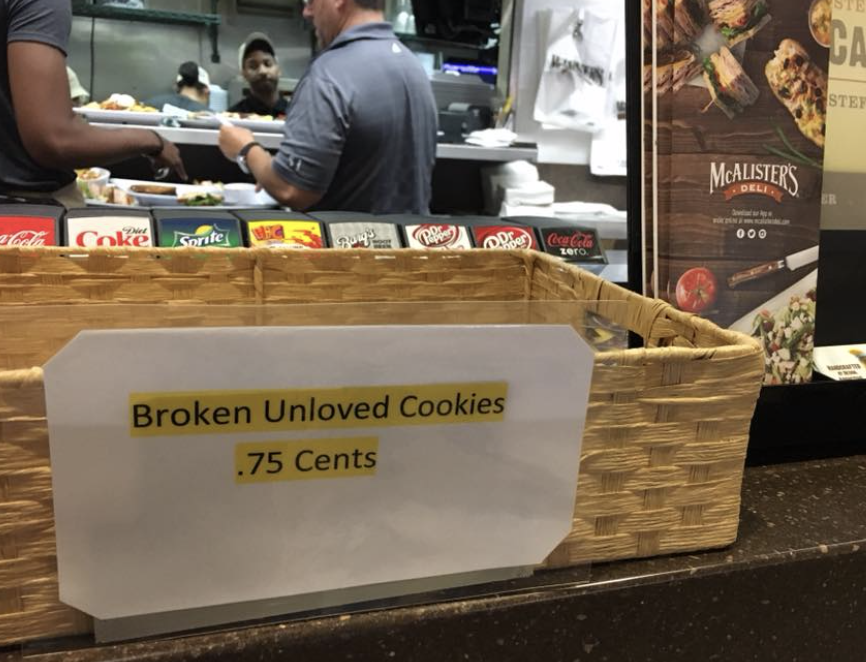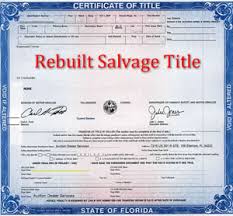
A few years ago I was in a Lowes Hardware store with a friend, picking up some home improvement items. After 15 minutes in the store, we headed to the checkout lane and had a brief but fun conversation with the woman at the checkout counter. She was professional, efficient and clearly enjoying her job. If there was an evaluation form to fill out – she’d definitely receive high marks.
As I was leaving the store, I turned to my friend and made an impromptu bet with him. I told him I would give him every dollar I had in my pocket (over $20) if he could tell me the name of the woman who just spent the last 10 minutes with us.
“You mean the lady at the counter?”, he asked.
 “Yep. Her. What was her name?”
“Yep. Her. What was her name?”
“She didn’t tell us that”, he tried to explain away.
“It was on her name tag, in plain sight”, I quipped back.
He studied my face to see if I was serious about this bet.
I was.
Then, as expected, I realized my bet paid off. In spite of the time we just spent with another human being – he had no idea what her name was – even though it was clearly and prominently displayed on her shirt for all to see.
Determined to take my money, over the next few minutes on the ride back to my place, my friend racked his brain to remember her name – to see if his subconscious mind somehow picked it up. In desperation, he began throwing out every female name he could think of:
- “Jenny?” Nope.
- “Susan?” Nope.
- “Jill? Erica? Emily? Rachel? Samantha? Gertrude?” Nope, nope, nope.
His countenance changed when he realized he was not going to be $20 richer that night.
How often do we do this? How often do we overlook the people closest to us who make it their career to serve us? Flight attendants? Hotel lobby employees? Custodians at work? Restaurant waiters? Uber drivers? Postal workers? Cashiers? If we pay attention, there is a world of people all around us – some of whom have names on a sign for us to see…. and somehow…
we
still
don’t
see
them.
Names are important to people. Don’t believe me? Call someone by the wrong name and watch their reaction.
Names are also important to God.
In Genesis 1, we are told that “God made two great lights: the greater light to rule the day and the lesser light to rule the night.”
Obviously, we know them as the Sun and Moon. Immediately after this verse, almost as an afterthought, the writer of the book of Genesis throws out this side comment, “He made the stars as well.” (verse 16)
By the way, He made the stars as well.
By the way, I discovered the cure for cancer.
By the way, I saved 15% on my car insurance last night. I mean, verse 16 makes the creating of stars seem as trivial as a Geico commercial.
Our brightest scientists (conservatively) estimate there are over 100 million stars in our galaxy alone. In the mid-90’s, the Hubble Deep Field estimated that there are over 2 trillion galaxies in the observable universe.
That’s trillion with a T.
Galaxies with a G.
If all of those galaxies had the same number of stars as ours, that number comes to….
A LOT.
Like 1,000,000,000,000,000,000,000,000 (24 zeroes)
Apparently new research shows that this estimate is at least 10 times too low. And according to Christopher Conselice of the University of Nottingham, U.K., over 90 percent of the galaxies in the universe have yet to be studied.
Why do I take the time to point out the insane number of stars?
Because of Psalm 147:4. If the sheer magnitude of the number of stars doesn’t blow you away, then Psalm 147:4 will:
“He (God) determines the number of the stars and calls them each by name.”
God doesn’t identify them with a number (which actually makes more sense)… He has a personal name for each one of them.
Every.single.one.
With this as a backdrop, you can appreciate a bit of divine sarcasm when God takes Abraham outside (Genesis 15) in a subtle, double-dog-dare-you tone and says, “Look up at the sky and count the stars — if indeed you can count them.”
While Abraham can’t even count them, God, the ultimate Show-Off, names them.
How? Why? Why bother? I mean, why name something that will never be visited or inhabited, discovered, counted or known?
Because names are important to God.
In fact, God’s first assignment to the earth’s first man was to name the animals. (Genesis 2:19)
Throughout the course of human history, God has called His people by name:
“Moses, Moses” (Exodus 3:4)
“Samuel, Samuel” (I Samuel 3:4)
“Martha, Martha” (Luke 10:41)
“Saul, Saul” (Acts 9:4)
Names are important to God. And no name is more important to Him than His Son’s which is why explicit instructions were given to Joseph about what that name would be:
“…an angel of the Lord appeared to (Joseph) in a dream and said, “Joseph son of David, do not be afraid to take Mary home as your wife, because what is conceived in her is from the Holy Spirit. She will give birth to a son, and you are to give him the name Jesus, because he will save his people from their sins.” (Matthew 1:21)
Jesus. The name literally means “God is salvation”.
When the prophet Isaiah predicted the birth of Christ (700 years beforehand) he wrote, “Behold, the virgin shall conceive and bear a Son, and shall call His name Immanuel.” (Isaiah 7:14)
Immanuel literally translated means “God with us”.
Is the Bible contradicting itself? Did Isaiah get the prophecy wrong? He predicted a virgin birth but messed up the name? Or did the angel not get the 700 year old memo? Is His name Jesus or Immanuel?
It’s both.
In both names, God is communicating more than a name, but His heart’s mission:
“My Son is coming on a rescue mission to be with you.”
As the Apostle John later penned, “The Word became flesh and made his dwelling among us.” (John 1:14)
In order to save us, He had to be with us. No wonder His name is above all names.
The next time you see a name tag, remember the name on it.
Because names are important to God, they need to be important to us.












